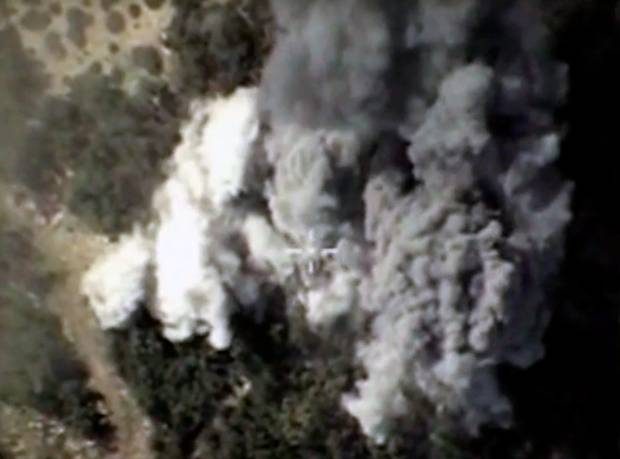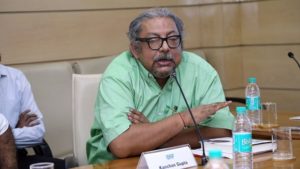The Russian military claims to have destroyed “most” of ISIS’s ammunition and heavy weapons after days of intensive air strikes across Syria.
The extraordinary claims, which have been met with skepticism from experts, were accompanied by a series of videos showing attacks on targets by Su-24 and -24M bombers.
According to the ministry, at least 86 ISIS targets were hit during 88 separate sorties over 24 hours on Monday and Tuesday. Russia said it carried out more than 100 air missions in Syria over the weekend.
“Russian air strikes resulted in the elimination of the majority of ISIS ammunition, heavy vehicles and equipment,” the Russian defence ministry said in a statement, adding that ammunition depots, vehicles, explosive plants and field camps were among the targets.
Srdja Trifkovic, a Serbian-American foreign affairs expert and editor with Chronicles magazine, told Russia Today: “The Russians with Syrian boots on the ground have done more to degrade Isis in less than 10 days than the US did in more than a year of its half-hearted campaign.”
But the official line from the Russian government was described as a “ridiculous” claim by UK-based experts.
Charlie Winter, a senior researcher for the anti-extremism think-tank Quilliam, said reports on the ground of Isis territorial gains “run contrary to Russia’s claims”.
“I highly doubt that even the Russians, who will be party to much of Assad intelligence, know where the “majority of ISIS ammunition, heavy vehicles and equipment” is located,” Mr Winter told The Independent.
He described Vladimir Putin’s intervention in Syria as an attempt to “contest the monopoly” of the West’s “War on Terror”, and described the defence ministry’s statement as “propagandizing to this end”.
Dr Andreas Krieg, an expert on the Middle East from King’s College’s Department of Defence Studies, said the positions Russia had said it was targeting “have been in the hands of moderate rebels for months now” – not ISIS.
“They also do not have the precision strike capability that western air forces have,” he said. “These claims that Isis has been significantly weakened are either highly exaggerated or wrong.”
Russia began launching air strikes in Syria on 30 September, allowing Syrian government forces to carry out a multi-pronged ground assault.
Moscow insists it is mainly targeting the Isis group, but Western-backed rebels say the ground-and-air offensive is largely being waged in areas controlled by other insurgents in order to strengthen the Assad regime’s position.
Also on Tuesday, Iraq said it had begun bombing Isis targets with help from a new intelligence centre that has staff from Russia, Iran and Syria.
“We can get a lot of use from Russian intelligence [in Iraq], even if they don’t do air strikes,” Shia politician Hakim al Zamili told Reuters.




